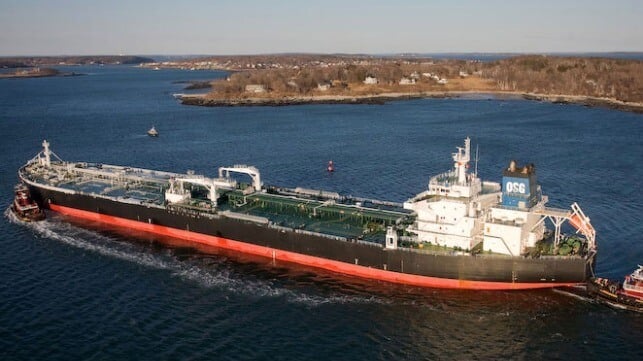OSG's CEO Proposes One-Cent Export Tax to Fund U.S. Tankers

In the event of a major war in the Western Pacific, U.S. forces are going to need fuel, and a lot of it. Government estimates of the supply needs for carriers, warships and ground forces run in the range of 50 million gallons per day, all of which would have to be transported over the vast reaches of the Pacific Ocean. U.S. war planners are well aware that the U.S.-flag tanker capacity to deliver this fuel is insufficient. The U.S. Tanker Security Program (TSP) subsidy has helped to offset this deficiency by recruiting 10 product tankers into the U.S.-flag fleet, but may not be enough in its current form. Sam Norton - CEO of Overseas Shipholding Group - has a plan to do much more, and make foreign consumers of American energy pay to do it.
According to Norton, a 30-ship Tanker Security Program fleet would go a long way towards bridging the national security gap, but the cost of tripling the program, would be significant. By his calculations, a viable plan for keeping 30 tankers in the TSP would require subsidies of about $400 million to cover the "higher operating costs of crewing and maintaining a US flag vessel."

that matters most
Get the latest maritime news delivered to your inbox daily.
Applying a levy of $0.01 per gallon on the 125 million gallons of refined fuel that American exporters ship out of the country every day would raise $400 million a year, Norton pointed out. He noted that this $0.01 per gallon tax on foreign buyers would be a tiny fraction of the $0.184 tax that American citizens pay on each gallon of gasoline at the pump. The gas tax raises billions for the Federal Highway Trust Fund, which is an economic and national-security priority.
"The US deems maintenance of its federal highway systems a necessity and asks taxpayers to bear the cost of that priority. Doesn’t a similar commitment to maintaining maritime logistical readiness at a cost of only one percent of the money spent on federal highways demand equal attention?" Norton asked.
